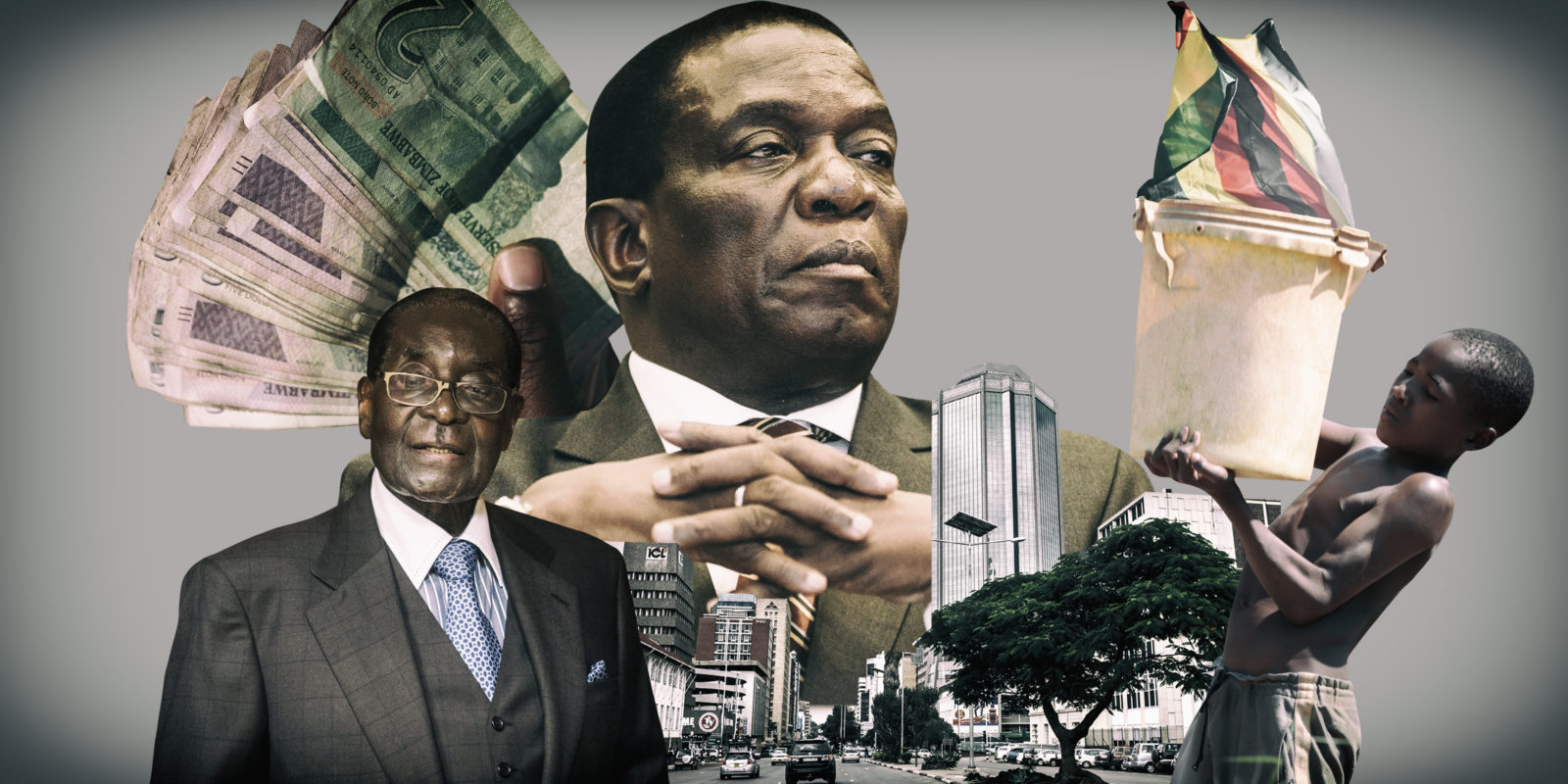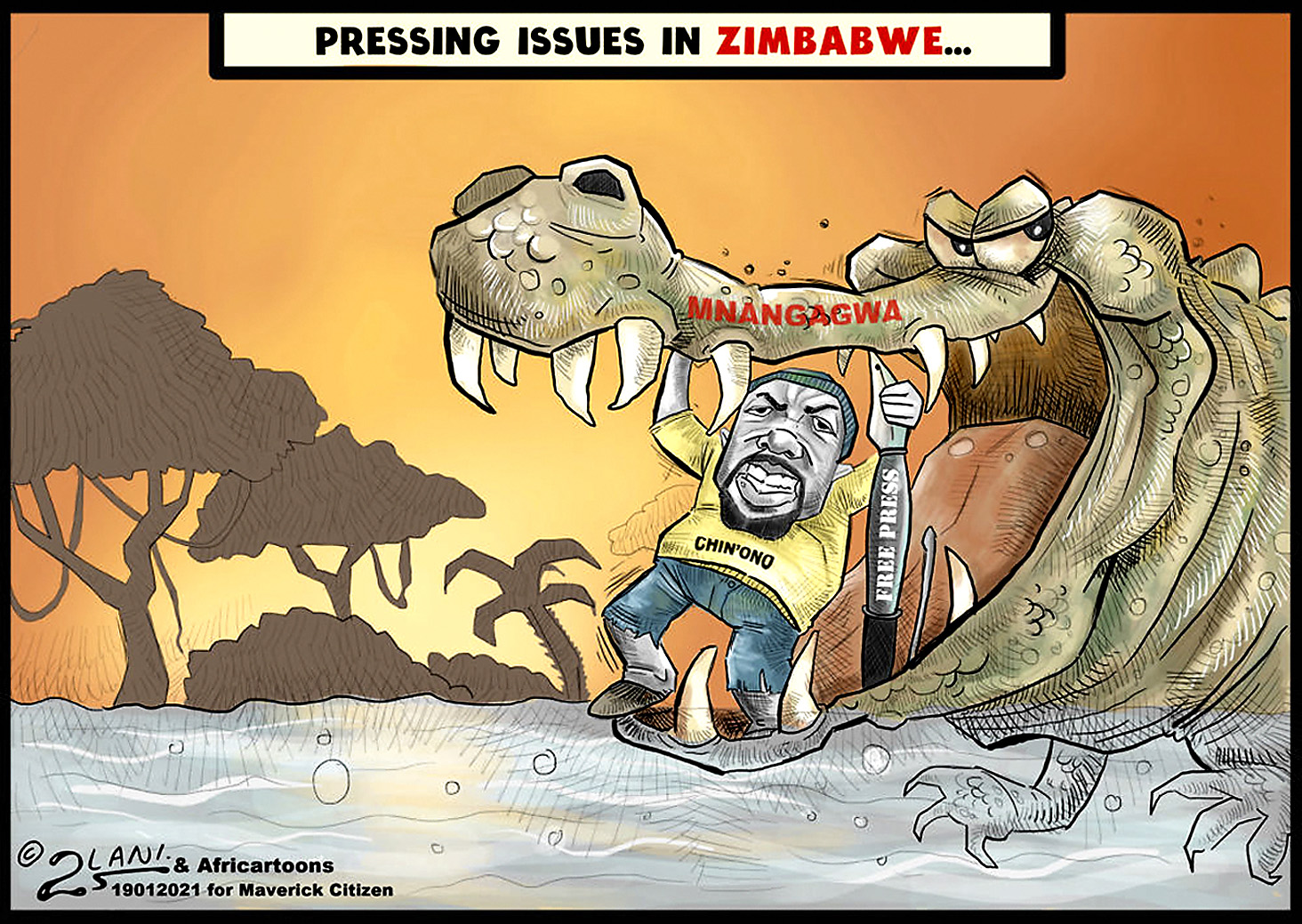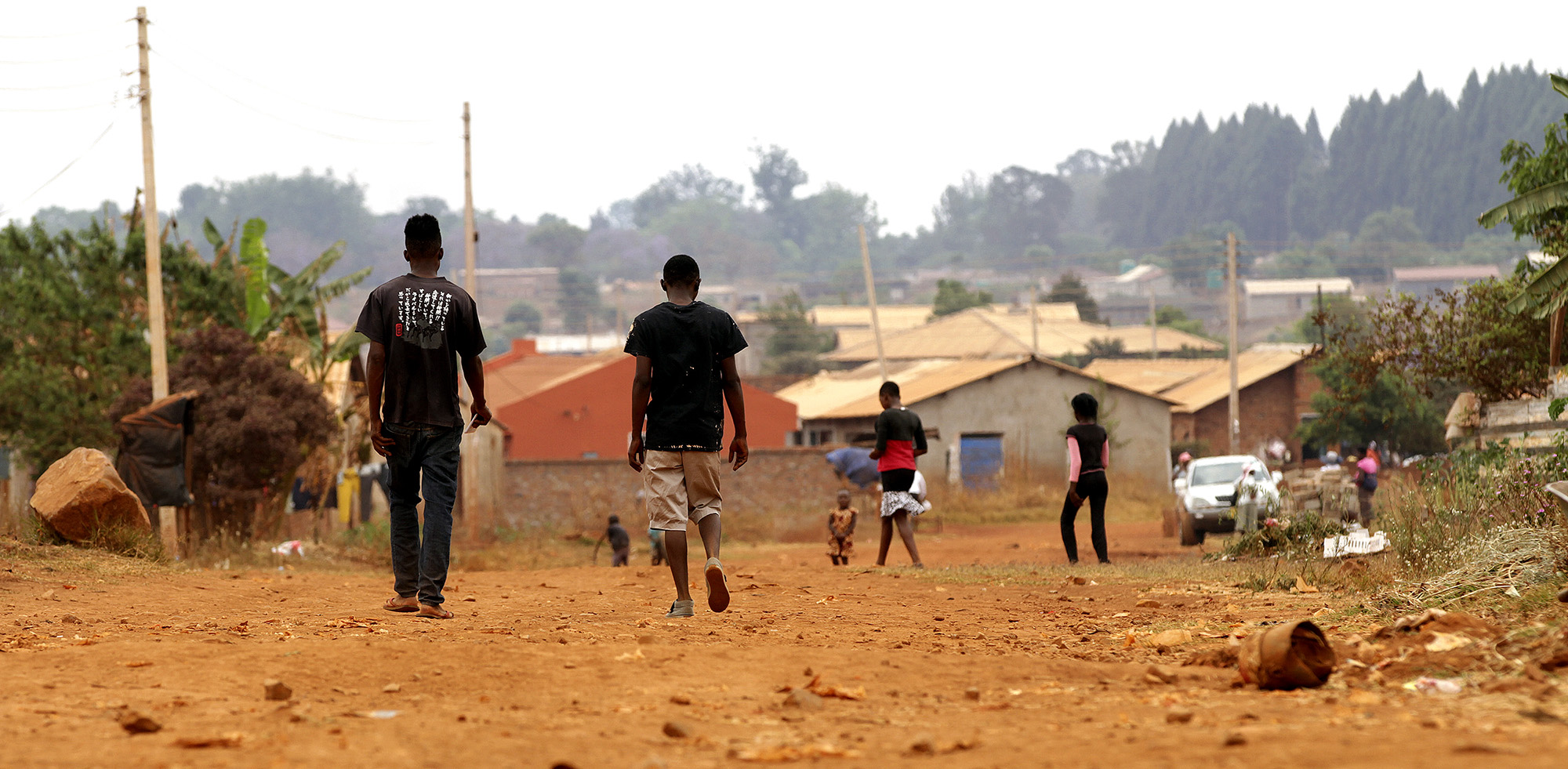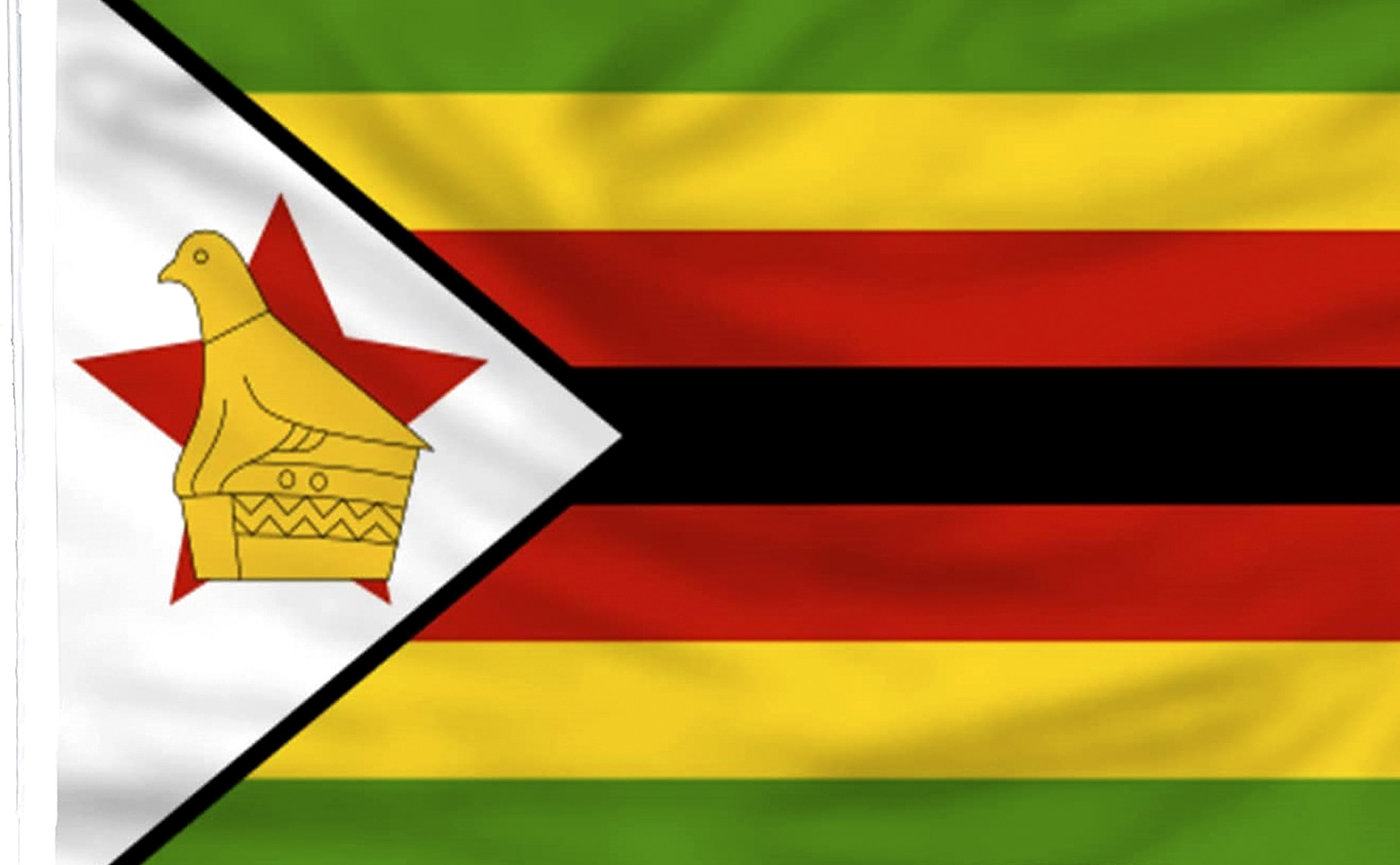MAVERICK CITIZEN EXCLUSIVE, PART ONE Zimbabwe: Explosive cartel report uncovers the anatomy of a captured state By Mark Heywood• 9 February 2021
- Get link
- X
- Other Apps
Zimbabwe: Explosive cartel report uncovers the anatomy of a captured state
By Mark Heywood• 9 February 2021

Illustrative image | Sources: Zimbabwe's president Emmerson Mnangagwa | Former Zimbabwean president Robert Mugabe. (Photos: Getty Images / Waldo Swiegers / Cynthia R Matonhodze / EPA-EFE/AARON UFUMELI) Less
Today, Maverick Citizen publishes an exclusive report which provides a post mortem of the cancer that killed the Zimbabwean dream of freedom and independence. It is being published in South Africa because, amid attacks on the media and civil society activists, it is not safe to do so in Zimbabwe.
The 64-page report details the scale of the theft – among others, illicit cross-border financial transactions cost Zimbabwe up to a staggering US$3-billion a year and billions in gold and diamonds smuggled out of the country. It is estimated that Zimbabwe may lose up to half the value of its annual GDP of $21.4bn due to corrupt economic activity that, even if not directly the work of the cartels featured in the report, is the result of their suffocation of honest economic activity through collusion, price fixing and monopolies.
Ironically, President Emmerson Mnangagwa, who has been a public critic of illicit financial transfers, is identified by the report as one of the cartel bosses whose patronage and protection keeps cartels operating.
The report, “A Study of Cartel Dynamics”, is a detailed analysis of all the available evidence of the economic cartels and the business people and politicians behind them who have captured the resources and government of Zimbabwe to serve their own interests. The report is available here:
Last week, we sent the report to Mnangagwa, Zimbabwe’s ambassador to South Africa, and all those implicated in the report. We asked for their comments but they did not respond.
The report focuses on business cartels because these are the vehicles used for state capture. One of the experts we asked to review the report pointed out that normally cartels work to undermine the state. In Zimbabwe, however, they are in league with the highest people in the land. #DemLoot, in the now-famous words of journalist Hopewell Chin’ono.

Yet, the report explains, because cartels and corrupt economic behaviour are “by their very nature secretive… it is difficult to accurately measure how much wealth the citizens of Zimbabwe have lost because of cartel activities.” Nevertheless, the authors provide several examples that point to the sheer scale of the theft:
- Illicit cross-border financial transactions cost Zimbabwe between $570-million and $3-billion a year;
- Intra-country fraud associated with cartels could cost up to $1-billion every year;
- According to a 2020 report by the International Crisis Group, up to $1.5-billion worth of gold per year is illegally smuggled out of the country;
- Billions of dollars in diamonds go unaccounted for; and
- In 2018 Zimbabwe’s auditor-general noted that 82% of government expenditure had financial irregularity in one form or another.


Not surprisingly, therefore, Zimbabwe now ranks 157 out of 180 countries on Transparency International’s annual corruption index.
However, what is unusual is that this report goes beneath the big numbers. The cartels it lists are unpacked and analysed in five case studies, looking at roads, fuel, agriculture, cigarettes and mining.
It uncovers the ways cartels made Zimbabwean politicians and business people enormously rich, although most of their wealth is hidden and banked outside the country, as revealed in the 2016 Panama Papers (see reports here and here).
The report argues that the 2017 military coup that removed Robert Mugabe left the economic system he had honed to serve the Zanu-PF elite largely untouched, with only a slight reshuffling of loyalties.
On the other hand, the cartels have left ordinary Zimbabweans among the poorest people in the world:
- 67% of all its citizens live in poverty and two million live in extreme poverty;
- Up to 35% of rural people are food insecure (in a country once described as the breadbasket of southern Africa);
- One in three children are malnourished; and
- Millions of Zimbabweans, perhaps up to a fifth of the population, have left the country as economic migrants.
The Zanu-PF government has responded to this deepening and largely self-made socio-economic crisis by entrenching rule by law rather than rule of law, and the rights in Zimbabwe’s progressive 2013 constitution seem to be observed more by omission.
In the words of the report, “law is used as a tool of political power to control citizens, rather than rule of law, whereby law is used to control the state and people in power”.
The research that informs the report was undertaken through an exhaustive literature review, as well as interviews with a number of people in Zimbabwe. Because of the threat of repression the interviewees are all anonymous and records of interviews have been destroyed. To ensure the integrity of the report Maverick Citizen undertook an independent fact-checking exercise and can vouch for the veracity of the information it contains.
It is, therefore, we believe, the most up-to-date and complete analysis in the world of how a whole economy is being hijacked.


Why the report is relevant to South Africans
First, our countries’ destinies are inextricably linked. We are all Africans, all victims of colonialism, of the arbitrary drawing of borders and now of predatory post-colonial elites.
Second, the report offers an anatomy of advanced state capture which should be instructive to how we understand our own recent experience. As witnesses to the Zondo Commission reveal more every day, Zimbabwe is an example of the country South Africa could have become were it not for the resistance of civil society, the media and the judiciary. The parallels and similarity in modus operandi are remarkable.
For example, the report (p20) details how the Zimbabwe National Road Authority (ZINARA), awarded a contract to a company for motorised graders “worth $8-million in 2012 where other bidders have quoted for $5.2-million. ZINARA ordered 40 more machines in 2013, despite criticism that the graders were inappropriate for Zimbabwean conditions.”
This seems troublingly similar to the scandal over the Passenger Rail Agency of South Africa’s (PRASA) purchase of trains that were too large to fit on South Africa’s railways, and the manner in which PRASA, like ZINARA, was captured and then looted for private gain.
Third, it is important because South Africa is deeply implicated in Zimbabwe’s ruin. Our crooked businessmen are the buyers of the diamonds, gold and tobacco smuggled or sold from Zimbabwe, but not declared or accurately priced for tax evasion purposes.
Our ruling party, the ANC, continues to cover for a political party that long long ago shed its progressive credentials.
And, as Chin’ono pointed out on Instagram several weeks ago in response to South Africa’s increasing militarisation of its borders to keep hungry Zimbabweans out, the problem is that “President Ramaphosa stands in solidarity with President Mnangagwa’s regime which authors unemployment and has destroyed the job opportunities that Zimbabweans seek in your country. It is a political problem that will remain in place until it is solved and when your own political elites in the MyANC stop supporting the political rot in Harare directly or implicitly.”
Recommendations
In its conclusion, the report admits that “curbing the activities and impact of cartels is a very daunting task for which there is little political will among those in power”.
“A clear majority of the actors whose responsibility it is to address cartel behaviour have become financially dependent on, and complicit in, their activities.”
External monitoring of Zimbabwe, together with supporting key institutions and individuals within Zimbabwe, are identified as key activities, something South Africans should be doing much more of. Despite rule by law, institutions like the Zimbabwe Anti Corruption Commission, the Office of the Auditor-General and key NGOs continue a valiant struggle for good governance, constitutionalism and social justice. The report advises that we should find ways to support them.
In addition, given the snuffing out of civic space in Zimbabwe, there is a heavy responsibility on people outside Zimbabwe who can act in solidarity by, for example, applying external pressure on companies and individual businessmen that are profiteering from state capture, and requiring that they implement responsible business legislation and policies developed by the United Nations.
With the election of Joe Biden as US president there is one less “big man” in the world behind which tyrants can hide, and it is hoped that through multilateral institutions (rather than unilaterally) the US will become a force to advance democracy and human rights again.
But in all of this South Africa has a unique role: our media, our revenue services, civil society, business and government all could play a much greater role in reversing cartel capture of the Zimbabwean state and the immiseration of millions of people.
It is with that expectation that we have decided to publish this report. Hopefully, the truth will help set Zimbabwe free. DM/MC
- In an earlier version of this report we indicated that Mr Isaac Moyo is the Zimbabwean Ambassador to South Africa, however it has since been brought to our attention that Mr DD Hamadziripi is the current ambassador. Several websites continue to indicate that Mr Moyo is the ambassador. We apologise for the error.
Comments - share your knowledge and experience
Please note you must be a Maverick Insider to comment. Sign up here or sign in if you are already an Insider.
Everybody has an opinion but not everyone has the knowledge and the experience to contribute meaningfully to a discussion. That’s what we want from our members. Help us learn with your expertise and insights on articles that we publish. We encourage different, respectful viewpoints to further our understanding of the world. View our comments policy here.
All Comments 12
I’m are I will be fascinated by this report in due course. But I can find nothing in the commentary about who has authored this report. While that may be for purposes of not wanting to reveal to authorities who did this — it demotes the value of this report to have absolutely no information of what type of grouping put this together. lots comes out of Zimbabwe which Daily Maverick does not use and when offered, has not paid for. Why would this carry any credibility.
The reason for anonymity, in this instance, should not affect the impact of the report. There is, quite simply, sufficient corroborating evidence available to support the story told.
The lack of action in support of the vast majority of Zimbabweans, to me, indicates that too many people of influence are using that country as a testing ground in which they are able to evaluate the effects of forms of population control with little likelihood of damage in their own sphere of activity?
I offer the draconian COVID regulations recently used in this country?
What organisations make up the conduit for movement of these funds and what is their commission?
This says it all:
“President Ramaphosa stands in solidarity with President Mnangagwa’s regime which authors unemployment and has destroyed the job opportunities that Zimbabweans seek in your country. It is a political problem that will remain in place until it is solved and when your own political elites in the MyANC stop supporting the political rot in Harare directly or implicitly.”
You can blame Thabo Mbeki.
Why blame Thabo the individual? He just continued serving the anc where his predecessor left off. As has everyone before and since then done. I have never heard a bad word from the anc regarding the rulers in Zimbabwe.
this is indeed true….
This is all such old hat that been in the public domain for years so which geniuses decided to write a report on it?
If there is any justice, eventually Zimbabwe will be freed of the blood-sucking people named in this report. This report is a necessary first step before anything can be done. I hope I will live to see it happen.
Zimbabwe has been the canary in the coal mine for South Africa. I’m afraid the canary has reached the end of its life. Will South Africa take heed and retreat from the noxious gas filled ANC run mine before it is too late?
Our problems started the moment the exiled comrades returned home and the feeding frenzy hasn’t stopped since. We didn’t join the struggle to remain poor is an apt refrain.
Countries do not have friends, only interests. Who has any interest in Zimbabwe? Probably only South Africa due to the fact that we receive their economic refugees. No other country gives a fig regardless of what they might say! In 2021 of all years, no one is going to pay any attention to the plight of the Zimbabwean people and if the world faces a financial crises as many expect, the situation in Zimbabwe will become a catastrophe. No fence will keep starving and desperate people out of South Africa.